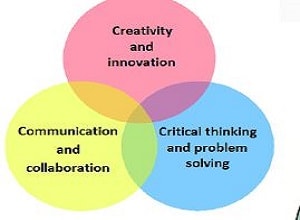21st Century Skills For Teachers And Students

These skills are needed by teachers and students, and this is because the approaches of yesterday are not sufficient for today.
For instance, one of the reasons for the high rates of unemployed graduates is due to inadequate of the required skills needed by graduates in the 21st century. These skills are needed by students to thrive in today’s global economy. To meet the global demands, schools must be transformed in ways that will enable students to acquire the creative thinking, flexible problem-solving, collaboration, and innovative skills they will need to be successful in work and life.
Furthermore, teachers who don’t embrace these skills won’t be effective in impacting relevant knowledge to their students. One of the roles of a teacher is to prepare students for the world beyond the classroom. And this can only be possible by equipping them with the right skills needed in this century.
According to the Educational Testing Service (ETS), 21st-century learning skills are defined as the ability to collect, organize, and manage information, evaluate the quality and usefulness of information, and generate accurate information through the use of existing resources.
In one of their publications, Griffin et al. (eds.) listed the 21st-century learning agenda as:
Ways of thinking
- Creativity and innovation
- Critical thinking, problem-solving, decision-making
- Learning to learn, metacognition
Ways of working
- Collaboration
- Communication
Tools for working
- Information literacy
- ICT literacy
Skills for living in the world
- Local and global citizenship
- Life and career
- Personal and social responsibility
From the agenda listed above, some of the skills for teachers and students are explained in detail below:
Creativity and innovation: This is an important skill that should be possessed by both teachers and students. Creativity for a teacher is the ability of a teacher to generate new ideas to deliver the course content for his/her students to understand. A creative and innovative teacher will produce outstanding students.
Information literacy: This helps learners to master content and extend their research, become more self-directed, and assume greater control over their learning.
ICT literacy: This is about leveraging learning with emerging technologies like computers, smartphones, etc. Effective teaching requires that a teacher should be able to make use of the technologies available for the proper delivery of his content.
Problem-solving: It is being analytic and creative in evaluating, comparing, and using imaginative power to create a large range of ideas for solutions.
Learning to learn: This is the ability to devise a means or strategy to understand the course content. This skill will help students to have a good learning attitude i.e. need to understand and make sense, thinking for themselves.
Communication skill: For a teacher to communicate effectively he should be able to express his ideas and views clearly and concisely by tailoring his content and style to his students i.e. he must make his content student-focused for effective learning.
Related Article: How to improve your success rate as a teacher
